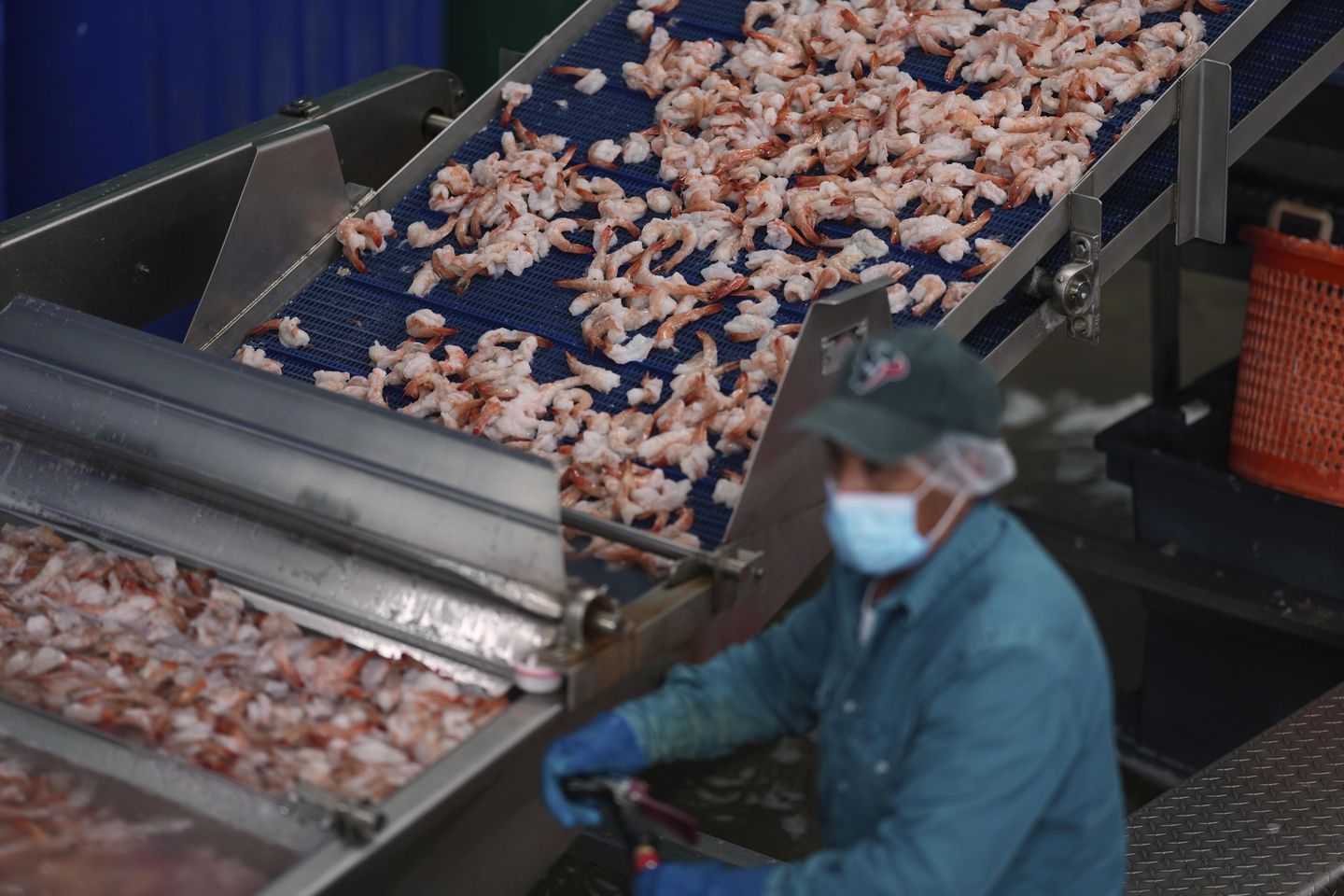
Restaurants, stores and even shrimp festivals are importing cheaper foreign shrimp but telling customers they’re eating shrimp caught by U.S. fishermen in the Gulf of America.
The deception is a major stab in the back for America’s shrimpers, who have watched their industry wither due to rising fuel costs and a flood of cheap imports from Vietnam, India, Ecuador and China.
American shrimpers say President Trump’s get-tough tariff policies would combat the damage done by cheap imports and could help deter fraudulent mislabeling by making it less profitable.
SeaD Consulting, a seafood technology company, tested shrimp from randomly chosen restaurants across the Gulf Coast states of Louisiana, Texas, Mississippi and Florida. It discovered that nearly half (43%) were passing off shrimp grown on ponds overseas and imported to the U.S. as locally sourced.
In the Tampa metro area, 96% of restaurants studied were caught lying about serving locally sourced shrimp, while 82% of eateries in Biloxi, Mississippi, were doing the same, according to SeaD Consulting.
Some of those same establishments are also selling T-shirts and other merchandise for customers to brag that they ate freshly caught Gulf shrimp.
Two major shrimp festivals were accused last year of using vendors that served imported shrimp with only one out of five serving Gulf Coast shrimp. The National Shrimp Festival in Gulf Shores denied the allegation, saying they have provisions in their contracts requiring vendors to sell domestically caught shrimp. They invited SeaD Consulting to test their shrimp next year.
“When consumers are assuming they are eating a Gulf product and they are not, they are being defrauded by restaurants and that is a serious situation,” said David Wiliams, a commercial fishery scientist and SeaD Consulting Founder. “There are a significant number of people who come to the Gulf Coast and get served the same shrimp they could get in Chicago. It’s very deceptive.”
The dishonest practice hurts customers who face a higher risk of consuming tainted food. Last year, the U.S. refused 81 shipments of shrimp from foreign nations because they used banned antibiotics, the highest total on record, according to the Food and Drug Administration.
China led the way, accounting for 32 of the 81 rejected shipments.
The U.S. tests less than 1% of the shrimp imported into the country for antibiotics or other contaminants.
The cheap imports are also an existential threat to the U.S. shrimping industry.
In the 1980s, the domestic caught shrimp accounted for more than half of the U.S. consumption. Today, more than 90% of all the shrimp eaten in the U.S. is imported because foreign shrimp faces almost no tariffs undercutting their domestic counterparts.
The total value of U.S. shrimpers’ catch shrank from $522 million in 2021 to $268 million in 2023, according to data from the National Oceanic and Atmospheric Administration. At the local level, the impact has been devastating.
In 2000, Texas had more than 2,500 licensed commercial shrimpers along its Gulf Coast. It now has fewer than 1,000. In 1995, Alabama had 1,424 licensed commercial shrimp holders. That number was down to 407 last year.
One potential solution is the tariffs imposed by Mr. Trump. The shrimp industry is one of the sectors in America that has welcomed Mr. Trump’s tariffs because it’s been undercut by imports.
John Williams, executive director of the Southern Shrimp Alliance, said the tariffs will increase the cost of importing foreign shrimp, which previously had not faced import duties until Mr. Trump levied them earlier this month.
“The U.S. shrimp industry expects tariffs will help offset unfair trade, allowing U.S. shrimp to be more competitively priced against imports. That is great news for consumers who may find premium U.S. wild-caught shrimp more available in grocery stores,” he said.
Mr. Trump had imposed steep tariffs on some of the largest shrimp importers into the U.S., but then paused those tariffs for three months, leaving in place only a baseline levy of 10%. However, he also raised tariffs on China – among the top shrimp exporters – to 145%.
The top four shrimp exporters into the U.S. would each face high tariffs – India (26%), Ecuador (12%), Vietnam (46%) and Thailand (36%) – if Mr. Trump restarts them in 90 days.
However, those countries are currently subject to the 10% tariff Mr. Trump imposed on most U.S. trading partners.
China is the eighth-largest exporter of shrimp into the U.S., though that has declined significantly since 2023, according to data from NOAA.
Mr. Williams of SeaD called the tariffs a good “short-term solution” to the issue of fraudulent shrimp.
“Obviously, if the shrimp got more expensive, it would mean that the domestic shrimp, locally produced shrimp, should be able to command a more reasonable price,” he said, adding that imported shrimp will be a “less attractive” option for restaurants and stores.
Mr. Williams cautioned that tariffs don’t necessarily address the problem of false labeling.
The Federal Trade Commission last year adopted a rule to more stringently enforce laws against mislabeling of seafood. However, critics said that beyond sending letters in October to remind restaurants of truth-in-advertising laws, the FTC hasn’t done much enforcement.
The agency did not respond to multiple requests for comment.
In recent months, the shrimping industry has pressured state legislatures to crack down on fraudulent seafood labeling, including shrimp. Alabama passed a law last year requiring restaurants that sell imported shrimp to include a notice on their menus telling customers that the shrimp is imported and list its country of origin. Louisiana passed a similar law in January.
Louisiana was already cracking down on fraudulent seafood. That’s why the state’s inauthenticity rate is 33% compared to the average of 78% for other markets surveyed.
“The enforcement piece of this is what the federal government could be doing,” Mr. Williams said. “Having more of a force out there to enforce those laws is one way forward.”






![Jasmine Crockett Justifies Mass Illegal Immigration With Bizarre Argument [WATCH]](https://www.right2024.com/wp-content/uploads/2025/03/1742007023_Jasmine-Crockett-Justifies-Mass-Illegal-Immigration-With-Bizarre-Argument-WATCH-350x250.jpg)
![NYC Tourist Helicopter Falls into Hudson River, Siemens Executive and Family Among Those Killed [WATCH]](https://www.right2024.com/wp-content/uploads/2025/04/NYC-Tourist-Helicopter-Falls-into-Hudson-River-Siemens-Executive-and-350x250.jpg)
![Red Sox Fan Makes the ‘Catch of the Day’ with Unconventional ‘Glove’ [WATCH]](https://www.right2024.com/wp-content/uploads/2025/04/Red-Sox-Fan-Makes-the-‘Catch-of-the-Day-with-350x250.jpg)







